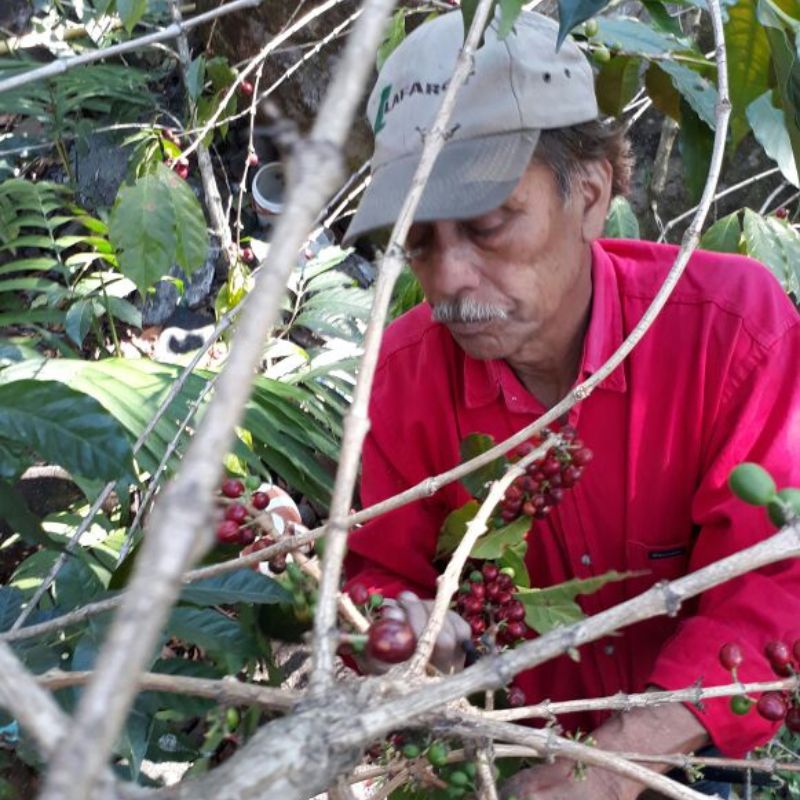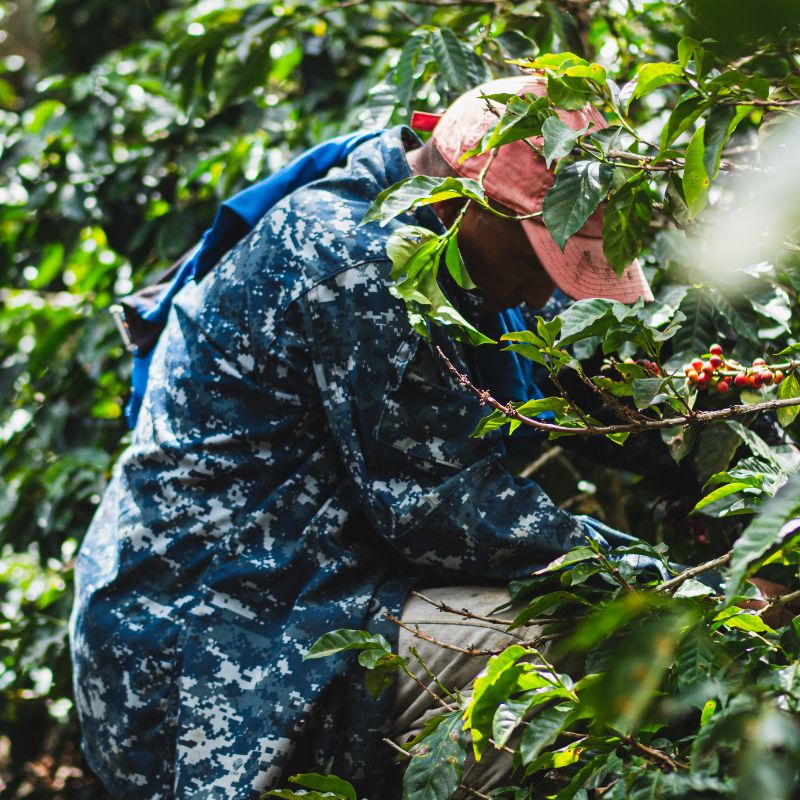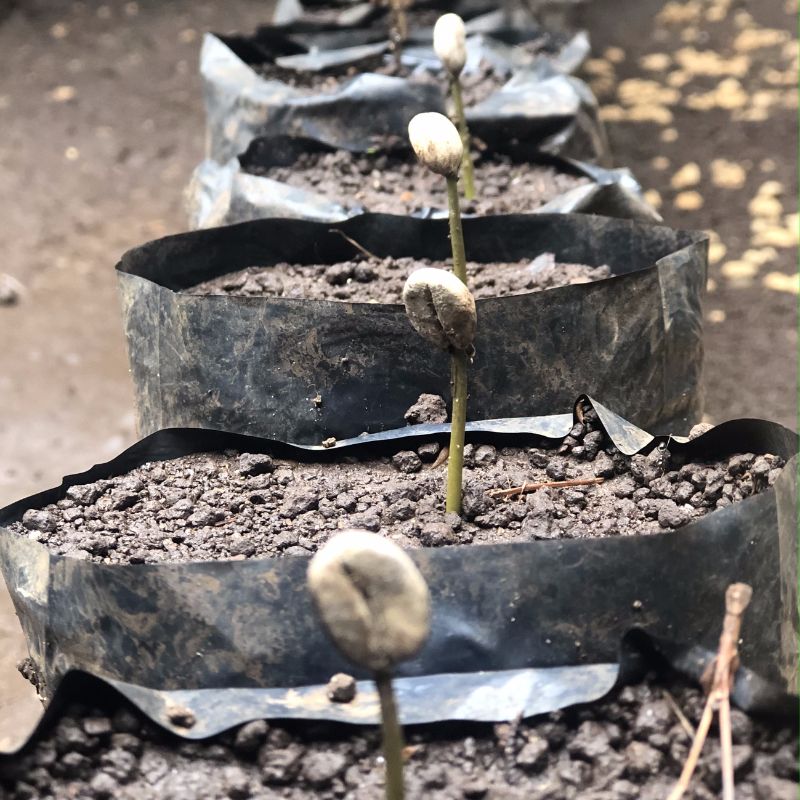Let's Talk About Organic Coffee
Let's talk about organic Guatemalan coffee. Becoming a certified organic coffee farm is not an easy certification (and we should know, our founder is a 3rd generation coffee farmer). There are multiple stages of farming that need to follow a set of regulations and guidelines to ensure the coffee is organic, from fertilizer to processing methods to the final product.
The inspiration behind our deep dive into organic coffee is Genaro Juarez, that our Genaro Juarez roast is aptly named after (pictured below).

Senor Juarez is a small estate coffee producer and is a member of a cooperative called APPAECE. His coffees have won multiple awards and recognition from the Best of San Marcos regional competition. Genaro, alongside his family, care for their fully certified organic coffee farm in the area of San Pedro Sacatepequez in San Marcos. The altitude, volcanic soils, and microclimate produce unique coffees with delicious sweetness and floral notes.
Let's dive into the steps and regulations needed in order to get an organic certification.

Organic Farming Practices
Organic producers use farming practices that promote the health of the soil instead of stripping it, values and promotes biodiversity within their land, and uses cyclical systems (re-using and recycling materials, compost, water, etc). Utilizing natural fertilizers like compost or manure and employing methods to control pests and diseases without synthetic chemicals is also a part of organic farming.
-
Nothing Synthetic: Coffee must be grown without the use of synthetic pesticides, herbicides, or fertilizers. Only approved organic substances are allowed.
-
No GMOs: The use of genetically modified seeds is prohibited in organic coffee production.
-
Soil Health: Maintaining natural soil health through practices like composting, cover cropping, and erosion control.
Certification
Farms must undergo inspection by an accredited organic certifying agency to ensure compliance with organic standards.
Traceability
Producing coffee has multiple stages from seed to being at home and grinding the final product. A clear chain of where the coffee came from is important in the specialty coffee world, but also to be certified organic coffee.

Sustainability
Farming is incredible impactful for the land. Environmental stewardship for producers would ensure conservation of biodiversity, use water resources responsibly, and live with natural habitats of the land, instead of harming local wildlife and plant life. A healthy biodiverse ecosystem is important for the native landscapes and should be protected. Organic farming seeks to protect the land. Here are ways to promote sustainable farming practices:
- Shade-grown coffee: 98% of Guatemalan coffees are shade-grown so all the coffees we offer are grown under conditions that preserve natural forests and environment. Poly-shade eco-systems allow native trees to be grown alongside coffea plants to contribute to the biodiversity of the farm.
- Compost: Using composted pulp from coffee cherries together with other natural components, such as manure, makes a fantastic source of organic fertilizer for coffee plants.
Try an organic Guatemalan coffee for yourself with our Genaro Juárez roast, winner of best organic coffee beans with Spruce Eats.





Leave a comment